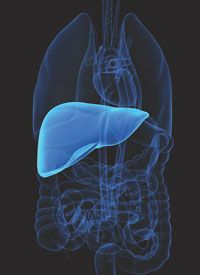Exploring the Potential for MicroRNA-34a as a Tumor Suppressor in HCC
Results from a study of microRNA-34a and natural killer cells presented at the 2017 International Liver Congress suggest that microRNA-34a, one of the most documented tumor suppressor microRNAs, could have a role in regulating cytotoxicity and development of the effector NK cells and their target cells.

Results from a study of microRNA-34a and natural killer (NK) cells presented at the 2017 International Liver Congress suggest that microRNA-34a, one of the most documented tumor suppressor microRNAs, could have a role in regulating cytotoxicity and development of the effector NK cells and their target cells.
Lead author Amira Abdelhamid, assistant lecturer, German University in Cairo, says that although microRNA-34a has been previously determined to be downregulated in HCC, it has never been explored in the NK cells of patients with HCC. The aim of the study, she says, was to assess the impact of microRNA-34a in NKs on the NKG2D receptor and its ligand ULBP2, in addition to NK cell cytotoxicity and development.
“Most of the studies only focus on the tumors, the abnormalities in the microRNAs, or any cellular pathways or protein expressionbut nothing focuses on the immune system itself with microRNA-34a in HCC patients.” Abdelhamid says.
Researchers observed overexpression of microRNA-34a (P= .0317) and NKG2D (P= .0374) in the NKs of the patients with HCC. The results show that forcing NKs to express microRNA-34a significantly increased NKG2D (P= .0474) and cytotoxic perforin-1 mRNA levels (P= .0444).
In an interview withTargeted Oncology, Abdelhamid discusses this study and the potential for microRNA-34a as a tumor suppressor in HCC.
TARGETED ONCOLOGY:What is the significance of microRNA-34a in HCC?
Abdelhamid:
First, microRNAs, in general, epigenetically regulate the cellular functions and right now, are very promising therapeutic tools because they have the ability to tune the abnormal cellular pathways, instead of just blocking it completely.
MicroRNA-34a, in particular, was found to be very important in HCC because it was already reported to be deregulated. That’s why recently researchers initiated clinical trials evaluating the use of microRNA-34a as a tumor suppressor. However, it was never investigated in the immune system of HCC patients before.
TARGETED ONCOLOGY:Could you please provide an overview of the study?
Abdelhamid:
First, I did some screening for microRNA and it was found to be deregulated. Then the idea was to look for any abnormalities or receptors in the NK cells specifically. We chose the NKG2D receptor because is one of the most important receptors, and we found it to be upregulated. The whole idea was to see that if we manipulated the expression of microRNA-34a in the NK cells, would that affect the NK cells’ cytotoxic abilities? Could microRNA-34a expression affect NK cell development? Does that have a role in the immune system as much as it does in the cancer itself or not?
And it did have an effect. It upregulated the expression of the NKG2D receptor, and it increased the expression of the perforin, which is an important marker for the cytotoxic function of the NK cells. It also effected the development of NK cells.
These were just some preliminary results of microRNA-34a and whether it will be able to have a role in the immune system as well, specifically, NK cells, or if is it just about the tumor.
TARGETED ONCOLOGY:Where do you see this research going next?
Abdelhamid:
I want to make a functional analysis. I want to make sure that when the manipulated NK cells are co-cultured with the cancer cells, it’s going to make a difference. Is it going to demonstrate an actual effect? Immunotherapy is promising but HCC is very stubborntreatment is not effective in most cases. That is why they started clinical trials for microRNAs—to seek out alternative treatments. Plus, immunotherapy does not have the problem of the drug delivery system. You can take the immune cells from the patients, activate them, and then re-inject them into the patient without any problem of rejection.
What I would like to see is more results. I want to make sure that microRNA-34a really does have an effect on the tumor. Down the road a little further, I would like to see this go into clinical trials to learn if it has efficacy in solid tumors like HCC.
TARGETED ONCOLOGY:What do you hope community oncologists take away from this study?
Abdelhamid:
I wanted them to see microRNA-34a from a different perspective. I know that it microRNAs are very famous in HCC, but I also know that no one has paid any attention to epigenetic regulation, or the abnormalities that happen in the immune system or the NK cells themselves.
Although microRNAs and immunotherapy are being studied widely nowadays, no one tried to combine the two of them. When I started my work, it was just one or two papers that combined the two of them in HCC. So, I want community oncologists to think about combining epigenetic regulation and see how the tumors very smartly manipulate the cells that are supposed to kill them.
Reference:
Abdelhamid AK, Yacoub RA, Fawzy LO, et al. microRNA and natural killer cells: an immune-epigenetic approach to halt hepatocellular carcinoma progression. Presented at: the 2017 International Liver Congress. Amsterdam, the Netherlands. April 19-23, 2017. Abstract #168579.
Gholam Contrasts Lenvatinib With Other Options in Child-Pugh B HCC
December 21st 2024During a Case-Based Roundtable® event, Pierre Gholam, MD, discussed how post hoc and real-world analyses build upon the limited available trial data for treating patients with unresectable hepatocellular carcinoma with Child-Pugh B status.
Read More
Enhancing Precision in Immunotherapy: CD8 PET-Avidity in RCC
March 1st 2024In this episode of Emerging Experts, Peter Zang, MD, highlights research on baseline CD8 lymph node avidity with 89-Zr-crefmirlimab for the treatment of patients with metastatic renal cell carcinoma and response to immunotherapy.
Listen